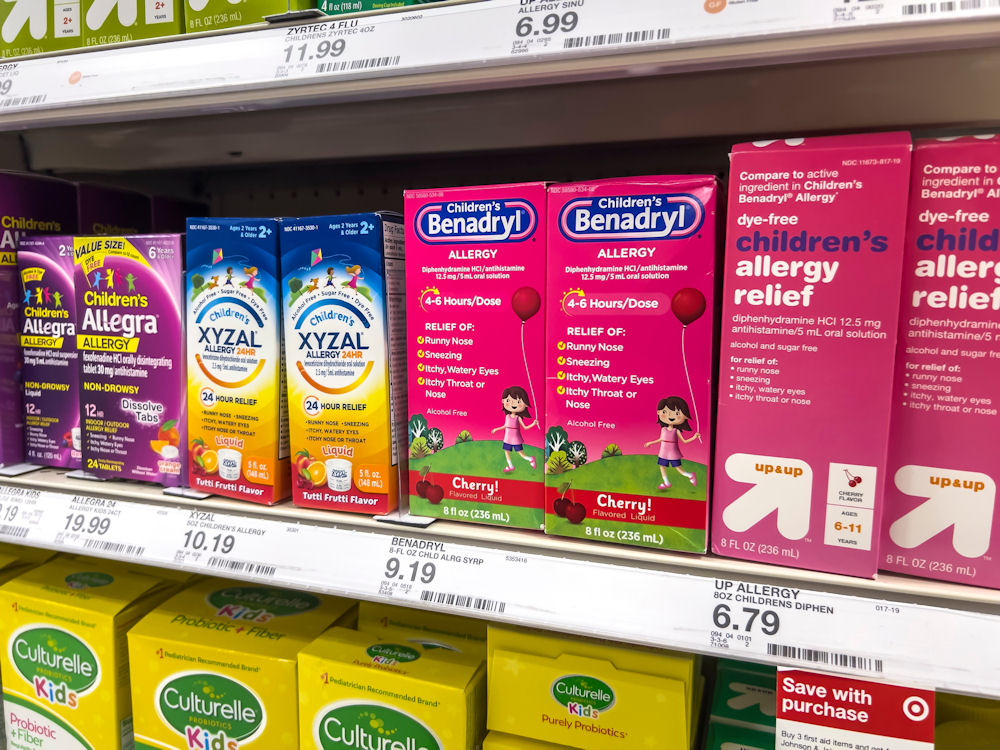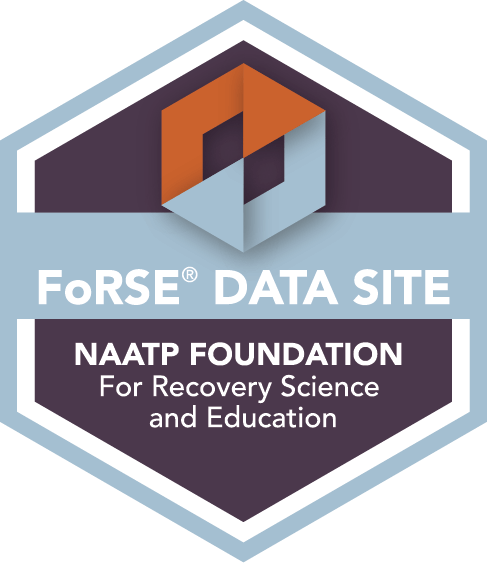Most people associate addiction and withdrawal with hard drugs or alcohol. Few people realize that even common, over-the-counter allergy medications can cause dependency-like symptoms, particularly when used daily over extended periods. For those who take antihistamines regularly to manage hay fever, chronic hives, or insomnia, stopping suddenly may trigger a series of uncomfortable effects known as antihistamine withdrawal.
This condition is often overlooked and can be mistaken for an allergy relapse, leading individuals to continue a cycle of daily use without addressing the root issue or understanding the deeper consequences. Let’s explore what antihistamine withdrawal is, how it shows up in your body and mind, and what steps to take for safe recovery and long-term wellness.
Addiction typically involves cravings, compulsive use, and negative consequences. While most people don’t crave antihistamines in the same way they might crave opioids or alcohol, they may develop a physical or psychological dependence. This chance increases dramatically when used for off-label reasons like sleep or anxiety relief, often without realizing the risks involved, making it important to seek help from a specialized facility such as our Xanax drug addiction treatment center.
For example, someone using diphenhydramine (Benadryl) every night to fall asleep may find they can’t rest without it. If they try to stop, they may experience insomnia, anxiety, or flu-like symptoms that can disrupt their quality of life. This isn’t necessarily addiction but it’s a form of withdrawal that deserves attention and care.

Distinction Between Withdrawal Symptoms and Allergy Flare-Ups
One of the most confusing aspects of antihistamine withdrawal is how closely the symptoms can resemble allergies. However, there are clear distinctions that can help individuals determine whether they are facing a rebound reaction or a genuine allergy flare-up:
Allergy Flare-Ups Typically Include:
- Sneezing
- Nasal congestion
- Watery or itchy eyes
- Skin rashes or hives
Antihistamine Withdrawal Symptoms Often Include:
- Anxiety or irritability
- Insomnia
- Dizziness or lightheadedness
- Nausea
- Sweating or chills
- Rebound allergy symptoms that are more severe than before, often appearing suddenly after discontinuation
Real-world example: After stopping Zyrtec, some users report intense itching across the body, far worse than any pre-existing allergy. This type of severe rebound itching can feel unmanageable and may take days or even weeks to resolve fully. This rebound effect is one of the most common antihistamine withdrawal symptoms, especially after long-term use.
What Is an Antihistamine?
Antihistamines are medications that block the effects of histamine, a natural chemical in the body involved in allergic reactions and immune responses. When your body comes into contact with an allergen (like pollen or pet dander), it releases histamine, which causes inflammation, sneezing, itching, and other symptoms to develop.
By blocking histamine, antihistamines prevent or reduce these reactions and provide relief from bothersome symptoms. They come in two primary classes:
- First-generation antihistamines: Older drugs that cross the blood-brain barrier, often causing sedation and drowsiness as a side effect (e.g., Benadryl)
- Second-generation antihistamines: Newer, non-sedating drugs that target allergies without significant cognitive effects (e.g., Claritin, Allegra)
Types of Antihistamines

Over-the-Counter (OTC) Antihistamines
- Diphenhydramine (Benadryl) – Often used for allergies, sleep, and nausea, but frequently associated with drowsiness and dependence in long-term users
- Loratadine (Claritin) – Long-acting, non-drowsy allergy relief option that’s generally well-tolerated and safe for daily use
- Cetirizine (Zyrtec) – Fast-acting and slightly sedating; may cause withdrawal-related itching when stopped suddenly
- Fexofenadine (Allegra) – Least sedating OTC option, often preferred by individuals who want daytime symptom control without fatigue
Prescription Antihistamines
- Hydroxyzine (Vistaril, Atarax) – Prescribed for anxiety, sleep, and severe allergies; known for its calming properties and higher risk of dependency
- Desloratadine (Clarinex) – Prescription-only long-acting allergy med with minimal sedating effects, ideal for chronic allergy conditions
- Levocetirizine (Xyzal) – A purified version of cetirizine, designed for enhanced efficacy and reduced drowsiness
Hydroxyzine, in particular, is often used for anxiety and can cause withdrawal symptoms similar to benzodiazepines when stopped abruptly, especially after consistent daily use for extended periods.
Common Side Effects of Antihistamines
Even when taken as directed, antihistamines can cause side effects that may range from mildly uncomfortable to disruptive:
- Dry mouth
- Drowsiness
- Constipation
- Blurred vision
- Dizziness

When taken for long periods, the body may adapt to the drug’s presence, altering normal brain function and leading to withdrawal symptoms if usage stops suddenly or without medical guidance.
What Are the Symptoms of Antihistamine Withdrawal?
Symptoms can vary, but common antihistamine withdrawal symptoms include a combination of physical, emotional, and rebound effects that may appear gradually or suddenly:
- Nausea, which may worsen during peak withdrawal
- Fatigue, making daily tasks more difficult than usual
- Chills or sweating, especially at night or in response to stress
- Headaches, often described as dull or persistent
- Muscle aches that can resemble flu-like body discomfort
- Mood swings, which may fluctuate quickly or feel out of proportion
- Anxiety or panic, particularly around bedtime or upon waking
- Insomnia or restless sleep patterns that interrupt recovery
- Brain fog or difficulty concentrating, impacting memory and clarity
- Severe itching that may not respond to typical allergy treatments
- Return of allergy symptoms (more intense than before), such as sneezing or congestion
These symptoms can last from a few days to a few weeks, depending on how long the medication was used, the dosage, and an individual’s overall health and sensitivity.

Can You Take Allergy Medicine With Alcohol?
Combining antihistamines with alcohol is risky and potentially dangerous. Both substances depress the central nervous system, which can lead to:
- Increased sedation
- Confusion
- Loss of coordination
- Impaired judgment
- Risk of overdose or respiratory depression
Hydroxyzine and Benadryl, in particular, are dangerous when mixed with alcohol due to their strong sedating effects, which can become intensified and unpredictable when alcohol is also in the system. Even non-drowsy options like Loratadine may amplify the effects of alcohol in sensitive individuals, leading to mild impairment or unexpected side effects.
Can You Overdose on Alcohol and Allergy Medicine?
Yes. Taking high doses of antihistamines with alcohol can result in a dangerous and potentially life-threatening overdose, especially with first-generation medications like diphenhydramine that already cause sedation on their own.
Symptoms of Antihistamine Overdose
- Rapid heart rate, sometimes escalating to dangerous arrhythmias
- Extreme drowsiness that can progress to unconsciousness
- Hallucinations, both visual and auditory, especially in large doses
- Seizures that may require emergency medical intervention
- Coma resulting from severe central nervous system depression
- Death in extreme cases, particularly when combined with alcohol or other sedatives
In recent years, ERs have seen an uptick in cases related to teens abusing Benadryl in viral social media challenges. This highlights the urgent need for education, prevention efforts, and parental awareness.
Who Is More Likely to Abuse Antihistamines?
Certain populations are at increased risk of antihistamine misuse:
- Teens and young adults seeking a high from large doses, often influenced by peer experimentation or viral trends
- Individuals with anxiety who self-medicate using hydroxyzine or diphenhydramine to avoid stronger prescriptions
- People in recovery who replace stronger drugs with OTC sedatives in an effort to remain “clean”
- Older adults who unknowingly develop dependency when using them for sleep, unaware of long-term risks

Treating Antihistamine Withdrawal
Management of Withdrawal Symptoms
- Gradual tapering – Never stop cold turkey after long-term use; instead, work with a healthcare provider to reduce dosage safely
- Supportive care – Hydration, rest, anti-itch creams, and comfort measures to ease discomfort during peak symptoms
- Non-sedating alternatives – Consider newer generation meds if symptoms persist or allergy control is still needed
- Mental health support – Therapy for anxiety, insomnia, or dependency, with access to both individual and group counseling
- Mind-body practices – Yoga, meditation, or acupuncture to soothe symptoms and promote balance in the recovery process
If withdrawal symptoms interfere with daily life or if you’ve been using antihistamines alongside other substances, it’s time to seek professional help and explore comprehensive treatment options.

Recover From Drug Addiction at NIRC
Antihistamine misuse may fly under the radar, but it can be a red flag for deeper behavioral or psychological patterns that need to be addressed with care and clinical insight. At Northern Illinois Recovery Center, we treat all types of substance use, including cases where over-the-counter (OTC) medications are misused as a coping mechanism or substitute for other drugs.
Our experienced team understands the complex relationship between medication dependence and mental health. Whether you’re dealing with sleep-related antihistamine use, alcohol interaction, or a pattern of self-medicating for anxiety, we offer compassionate, customized care to help you recover safely and fully while building tools for lasting wellness.
NIRC Offers:
- Medical detox and withdrawal management
- Dual diagnosis treatment
- Holistic recovery approaches
- Day and evening outpatient programs
- Long-term support and relapse prevention
You don’t have to navigate withdrawal alone. If you suspect antihistamine dependence or are ready to explore your recovery options, we’re here to support your journey every step of the way.
Call today or contact us online to learn more about our evidence-based, person-centered approach to healing.
- National Institutes of Health (NIH). “Diphenhydramine and Antihistamine Use: Dependence and Withdrawal.” https://www.ncbi.nlm.nih.gov/
- Mayo Clinic. “Antihistamines: Drug Info and Warnings.” https://www.mayoclinic.org/
- Substance Abuse and Mental Health Services Administration (SAMHSA). “Misuse of OTC Drugs.” https://www.samhsa.gov/





